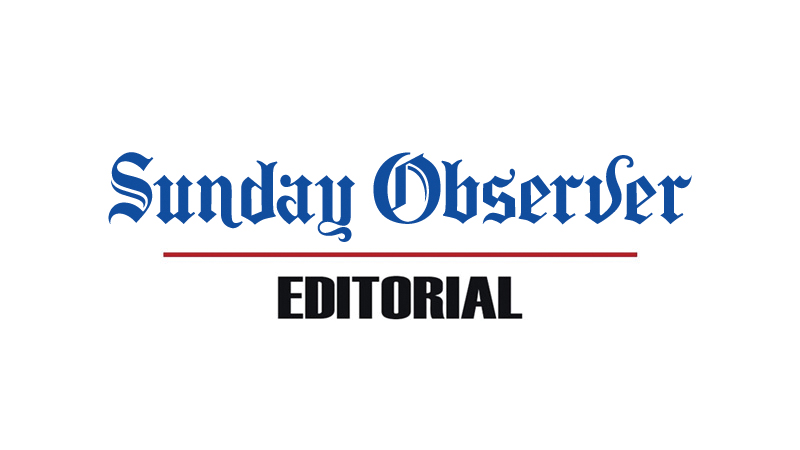Sri Lanka, along with the rest of the world, continues to grapple with the lasting effects of Covid-19, exactly five years after the World Health Organization (WHO) declared it a global pandemic in March 2020. In hindsight, it is now clear that Covid-19 reshaped nearly every aspect of society, exposing deep vulnerabilities but also demonstrating resilience and adaptability.
The technological breakthroughs made in the first year of the pandemic with regard to mRNA vaccine technology accelerated the treatment of many other diseases and has led to faster vaccine development timelines.
Initially, confusion and misinformation hindered timely responses globally and locally. This was the first global pandemic of our lifetime and Sri Lankan healthcare professionals rose to the challenge, managing a crisis that threatened to overwhelm an already strained healthcare infrastructure. Treatment, quarantine and patients’ surveillance tactics were developed, tested and tweaked in real time.
While significant gaps emerged in accurate data collection and reporting, echoing a global trend, Sri Lanka was successful in containing the virus, for the most part. Real-time data is vital for managing pandemics, and the delay in accurate information impacted vaccine development and distribution worldwide. Making matters worse, developed nations hoarded the coveted mRNA vaccines initially, while encouraging misinformation about the efficacy of the vaccines available to the developing world. In Sri Lanka, fears of the quality and efficacy of vaccines available to us, even among some medical professionals, delayed the roll out of the vaccination drive in 2021.
One of the most critical global and local issues exacerbated by the Covid-19 pandemic was vaccine hesitancy. Initially met with enthusiasm, vaccine uptake later faced resistance driven by misinformation, distrust in institutions, and the politicisation of health responses. The shifting claims made by medical professionals in the developed world on what these vaccines can accomplish also reinforced vaccine scepticism.
Ultimately, this led to declining rates of vaccine uptake even for routine immunisations such as measles, which has now spiked in developed and developing countries. In Sri Lanka, hesitancy was partly fuelled by misinformation spread via social media and mixed messaging from the authorities. This underscores the importance of transparent communication and trust-building measures, which must become central components of future public health strategies.
Polarisation, both globally and locally, further complicated the response. Covid-19 exacerbated existing societal divides, amplifying political and social polarisation. The United States, for instance, witnessed significant partisan splits regarding public health measures, vaccines, and mask mandates, a trend mirrored in many other countries, including Sri Lanka.
The Gotabaya Rajapaksa administration used laws in place to control Covid-19 to ban protests and used quarantine laws to arrest and isolate political activists. That administration also insisted that all Covid-19 dead should be cremated, causing great distress to the Muslim community. It took over a year for the Government to allow burials for Muslims. Moreover, inconsistent policies and mixed messaging by authorities deepened mistrust among communities, creating obstacles to unified action against the pandemic.
The inequities exposed during Covid-19 were stark, with vulnerable populations disproportionately affected. In Sri Lanka, daily wage earners, informal sector workers, and rural communities bore the brunt of the economic and social impact of Covid-19. Lockdowns, although necessary, resulted in severe economic hardships, loss of livelihoods, and increased vulnerabilities for women and children. The extended lockdown also played a role in weakening the country’s economy, which led to its collapse in 2022.
Yet amid these challenges, local communities exhibited remarkable solidarity, stepping in to support neighbours in need through grassroots initiatives. This demonstrated that community-driven solutions are critical, particularly when official capacities are overwhelmed.
Looking ahead, global preparedness for future pandemics remains uncertain. Humans continue to clear forests and tropical deforestation increases the risks of emerging zoonotic (viruses that “jump” from animals to humans) diseases. Healthy forests act as barriers, containing diseases within their natural habitats. However, human-driven destruction is breaking down these protective barriers, allowing pathogens to emerge and spread.
Diseases such as HIV, Zika, SARS, mpox (previously called Monkeypox), and Ebola represent just a fraction of the illnesses originating from tropical forests. In the 1920s, almost half of Sri Lanka was covered with forests, but the forest cover is now between 30 and 20 percent, depending on who you ask, and the next pandemic might be hiding in our own jungles. Thus, protecting the natural environment too must be a part of our preparedness for future pandemics.
The dismantling or weakening of public health institutions, as observed in some countries such as the United States, and inadequate global cooperation frameworks threaten effective responses to future health crises. In Sri Lanka, pandemic preparedness must involve significant investment in healthcare infrastructure, digital modernisation of health data systems, and robust strategies to counter misinformation on social media and even traditional media.
Critically, Sri Lanka must also address vaccine hesitancy proactively, building sustained public trust through clear, consistent, and science-driven communication. Enhanced public education campaigns and meaningful community engagement are essential to maintaining vaccination rates and public health readiness. After all, Sri Lanka is a vaccination “success story” and we must not forego it.
On a global level, efforts to establish binding agreements (a Pandemic Treaty) and cooperative frameworks for pandemic preparedness have stalled, highlighting a worrying gap in collective global security. In Sri Lanka and beyond, rebuilding trust in health authorities, investing in scientific research, and ensuring equitable access to healthcare services must be prioritised.
Covid-19 taught the world painful yet valuable lessons. Five years later, remembering those precious lives lost and honouring frontline workers’ sacrifices, Sri Lanka must commit to stronger public health systems, robust preparedness measures, and bridging societal divides. Future pandemics are inevitable – it is a question of when, not if and our response must be decisive, compassionate, and united.









